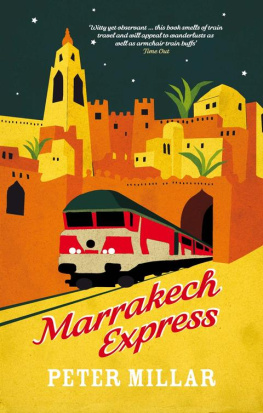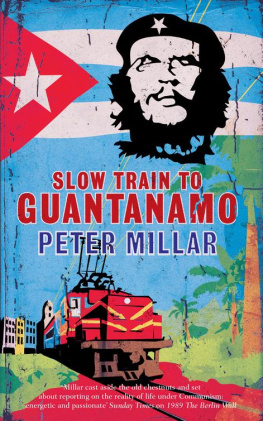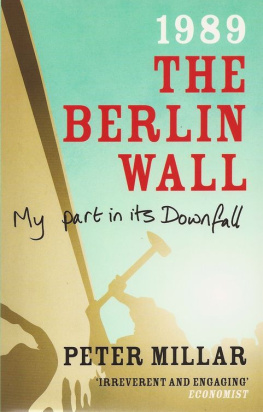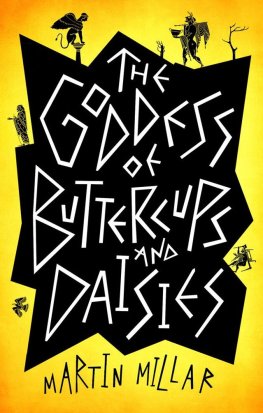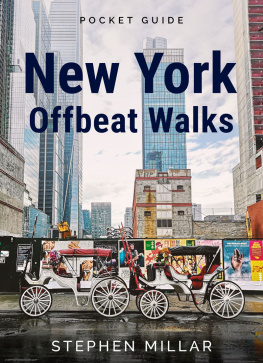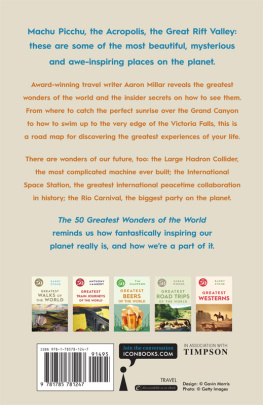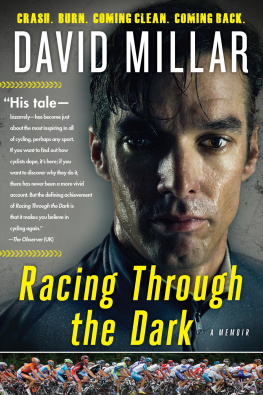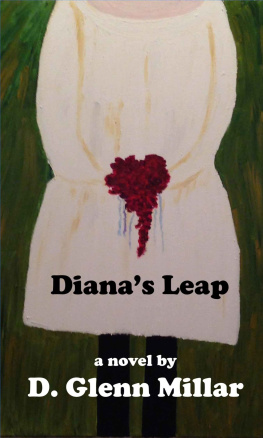PRAISE FOR PETER MILLAR
Slow Train to Guantanamo
The book gives an insight into Cuban daily life, Caribbean communism, the food, the beer, the colours, the smells (good and bad) and the realities of an artificial economy that the package deal tourists will never even glimpse. If you have ever been to Varadero and Havana (the standard package), read this book, then go back and see the real Cuba whilst you still can. If you have never been to Cuba, read this book, and if you then dont want to go to Cuba, you have no soul, and they wouldnt want you there anyway. Go to Cuba, but take your own toilet seat, and paper, the locals will understand J. P. Hayward
1989 The Berlin Wall
The best read is the irreverent and engaging account by Peter Millar, who writes for the Sunday Times among other papers. Fastidious readers who expect reporters to be a mere lens on events will be shocked at the amount of personal detail, including the sexual antics and drinking habits of his colleagues in what now seems a Juvenalian age of dissolute British journalism. He mentions his long-suffering wife and children rather too often, but the result is full of insights and on occasion delightfully funny. The author has a knack for befriending interesting people and tracking down important ones. He weaves their words with his clear-eyed reporting of events into a compelling narrative about the end of the cruel but bungling East German regime The Economist
The most entertaining read is Peter Millars 1989The Berlin Wall: My Part in its Downfall, a witty, wry, elegiac account of his time as a Reuters and Sunday Times correspondent in Berlin throughout most of the 1980s Spectator
1989 The Berlin Wall is part autobiography, part history primer and part Fleet Street gossip column Millar cast aside the old chestnuts and set about reporting on the reality of life under communism. In bare Stalinist apartments, at hollow party events Volker the gravedigger-cum-hippie, the Stasi seductress Helga the Honeypot, Kurtl the accordion player whose father had been killed at Stalingrad, and the petty smuggler Manne who has been separated from his parents by the Wall Energetic and passionate Sunday Times
All Gone to Look for America
Succeeds in capturing the wonder of America that the iron horse made accessible to the world The Times
Witty yet observant this book smells of train travel and will appeal to wanderlusts as well as armchair train buffs Time Out
Fills a hole for those who love trains, microbrewery beer and the promise of big skies and wide-open spaces Daily Telegraph
The Black Madonna
With a journalists keen eye and ear, and a born storytellers soul, author Millar has written a truly compelling, globe-trotting thriller. Rich in history and cultural detail, The Black Madonna is a page-turner of a novel that flings us into the heart of the essential conflicts of our times. Look out, Dan Brown, make way for Millar Jeffery Deaver
Stealing Thunder
An intelligent thriller fast-paced and convincing Robert Harris
IT WAS ONE OF THOSE MOMENTS when you think the TV remote might have gone into interstellar overdrive, switching randomly at high speed between news, soap opera and light entertainment. Only in real time. In real life.
A few minutes ago my friend Abdel had poured a liberal measure of vodka and Coke into a red-and-white spotted mug and handed it to me, with the whispered afterthought, We can nip round the corner for a toke of kif in a minute.
But right now I am standing on a street corner, wreathed in acrid smoke, a youth in a sweaty singlet next to me holding an axe and machete above my head while a 12-year-old boy on my right brandishes his fists aggressively, and in my hands is a bloodied skull, recently stripped of its flesh.
From a nearby rooftop Abdels pretty young nieces are looking down on us, tossing their luxuriant dark hair and waving happily as they prepare to post on Facebook their photos of the ritual slaughter of the lambs.
It could only be Morocco.
I am in Larache, a beautiful, if somewhat neglected, Atlantic coast town in the former Spanish occupation zone subtly but distinctly different from those that were occupied by the French as an honoured guest of a local greengrocers family at the holiest festival of the Muslim year. Toe-deep in freshly spilled goats blood.
Once upon a time I thought the cover of the Rolling Stones album Goats Head Soup freaky, but it was as nothing compared to the real thing I am now holding in my hands. Yet my reaction is not horror. Maybe just mild shock. But then the vodka helps. As does the kif inhaled, deeply, from a long wooden pipe with a little clay bowl, a few minutes later.
The occasion is Eid el-Adha, The Feast of the Sacrifice, commonly referred to for the benefit of non-Islamic foreigners as the Muslim Christmas: the big religious holiday 40 days after the end of Ramadan when families come together, go to prayers in the morning, eat well, then dress up in their finest clothes and parade around town greeting one another in a great celebration of family life. Oh, and slaughter a sheep or two. Each. The slaughtering is left to the men, of course. Specifically to the fathers. Those who do not do their grisly duty are considered in orthodox Islam to be insouciant towards the fate of their children.
Eid el-Adha commemorates one of the most important stories shared by the Jewish, Christian and Muslim religions: the moment when Abraham, ordered by God or Allah aka Yaweh (none of which is actually a name, just a statement of deity) to sacrifice his son, is released from his dreadful promise by an angel who shows him a ram caught in a thorn bush which he may sacrifice instead. The story is essentially identical in all three traditions except for a few details, such as that the Arabic name for Abraham is Ibrahim, and whereas Jews and therefore Christians believe that the child to be slaughtered was Isaac, the (more treasured) younger son who would survive to be patriarch of the Jews, Muslims prefer to believe that it was his (more important) first-born, Ismail (Ishmael), who would survive to become patriarch of the Arabs. But then in any story it is only natural that everybody wants their own ancestor to have had the starring role
Such religio-historical hair-splitting, literal or otherwise, is hardly much on my mind. I am in Morocco on a pilgrimage of an altogether different kind: the long-overdue fulfilment of an early-teen aspiration that would eventually lead me on a voyage of exploration through one of the most fascinating, quixotic and exotic countries in the world.
My fascination with Morocco had begun 45 years ago when a magical pop song exploded over the airwaves, which to a generation that for the first time in history could travel widely, other than as soldiers with guns in their hands, summed up a brave new world of excitement and adventure.
It was, oddly enough, written by an Englishman though, given the spirit of the age, it had to be sung by an American band. Not just American, but Californian. It was a song that conjured up an accessible vision of escapism and free love, fuelled by cannabis, a drug dreaded by a hidebound establishment built on class and capital.
Nashs catchy little ditty was a wake-up call for a new generation in a new world, a generation whose fathers had known North Africa, if at all, as drudge foot soldiers, cannon fodder in the wars of outdated empires. Now here was an Englishman, living in California, urging us to take a train from Casablanca going south, blowing smoke rings from the corner of our mouths. It was an irresistible invitation. And we knew only too well that it wasnt tobacco Mr Nash and his friends were smoking.

